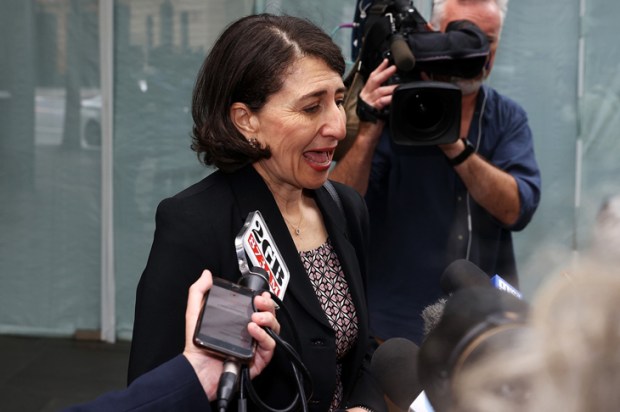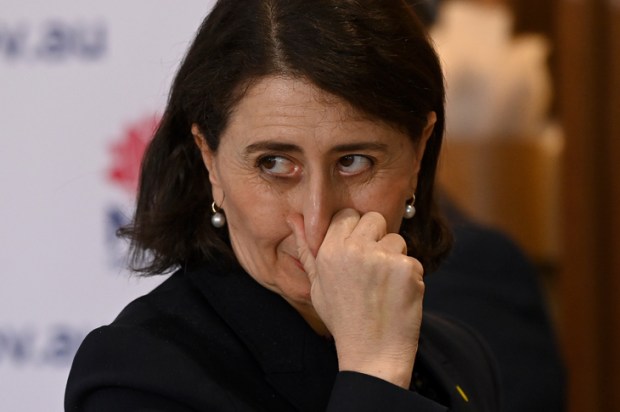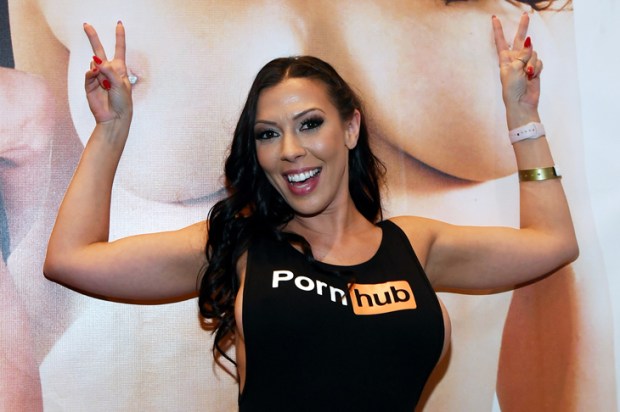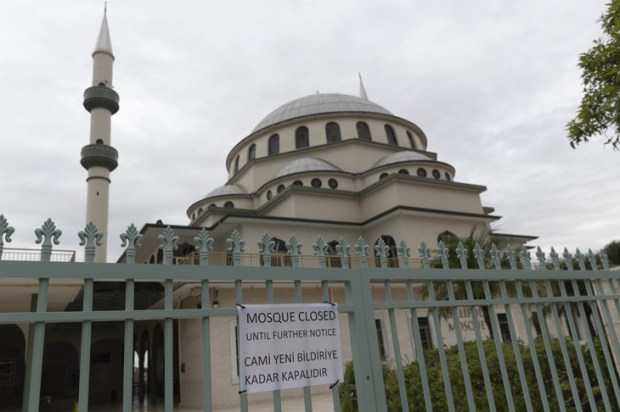
In the pages of this magazine and elsewhere, the British neolibertarian Brendan O’Neill has mounted a curious argument about media ethics. Even though 800 British citizens have had their phones tapped and their privacy violated by tabloid journalists, O’Neill sees the real threat to individual liberty as arising elsewhere: from the investigation of these crimes. He has attacked the Leveson inquiry as ‘the institutionalisation of bourgeois disgust for tabloid culture’, featuring ‘celebrity snobs vomiting their bile’ on press freedoms.
For students of class politics, this is priceless. For 42 years the News of the World was owned by Rupert Murdoch, a fully paid-up member of the bourgeoisie. Thus in O’Neill’s nonsensical construct, the ruling class is cannibalising itself over the issue of who should rule whom. He has failed to answer the most obvious of questions: if the bourgeoisie is so disgusted by tabloid culture, why are the tabloids run by bourgeois companies like News Corp?
O’Neill’s nastiest slur is against the parents of Madeleine McCann and Milly Dowler. In the Australian newspaper on 3 December, he depicted these tragic figures as doing the ‘dirty work’ of the anti-tabloid movement. In O’Neill’s eyes, their evidence to Leveson was not motivated by the grief of losing a child or the injustice of newspaper lies, but by the soppy politics of victimhood. The possibility of the McCanns and Dowlers having a genuine story to tell is discounted as ‘political agenda-setting’.
I find these comments no less repugnant than the surreal testimony of former Murdoch editor Paul McMullan, who declared that ‘privacy is for paedos’. In the real world people value the dignity of a private life, of being able to spend time with loved ones, safe from the voyeuristic intrusion of strangers. ‘In 21 years of invading people’s privacy,’ McMullan claims he had ‘never found anybody doing any good.’ A mother wheeling a pram in the park, a father looking out for his children’s interests, a husband and wife enjoying a rare night out — these are private moments, the simple pleasures of life that do a great deal of good in society. They are essential to our wellbeing and as such, should be off-limits to weirdos like McMullan.
In light of Leveson, more people should come forward detailing their experiences with the tabloid media. Invasions of privacy are like home burglaries: you don’t know how bad they are until they happen to you. For my many sins in public life, I have never been called bourgeois or snobbish. In fact, Alexander Downer once described me as ‘a rag-picking peasant’. O’Neill, therefore, might want to rethink his position in light of my recent encounters with Murdoch tabloidism.
Last month at the decidedly non-posh Camden pool (in south-west Sydney), my two sons signed up for swimming lessons run by the NSW Department of Education. By the end of the second day it was clear the program was shambolic, a point confirmed to me by the head of our school P&C. I was worried my boys were wasting their time, so I raised this problem with the teacher in charge, who turned out to be Bev Waugh (the mother of the cricketing twins Steve and Mark).
This was not a lengthy conversation, so I can repeat it in full:
Latham: Excuse me, I’m one of the parents from Mount Hunter. I was just talking to some of the other parents and we were wondering if it’s possible to extend the kids a bit more, to push them along. They don’t seem to be getting much out of the lessons so far.
Waugh: Well, it’s just the second day and they’re doing water safety to start with. But there are lots of issues here. The Department of Education has booked in too many kids. We have lots of issues, you see.
Latham: Well, as a parent that doesn’t give me a lot of confidence. Maybe you could sort out the issues because, if parents think it’s a waste of time, they’re not likely to come back next week or next year. The students are missing class time to be here.
Waugh: That’s your business, if that’s what people want to do, it’s up to them.
Latham: OK then, you’re very receptive (walks away).
Thereafter, the standard tabloid methodology applied. Three days later, as my children and I left the pool, Jennifer Sexton, a journalist from the Sunday Telegraph, was standing at the rear of our car wanting to interview me about the ‘incident’. One of her colleagues, a photographer, was hiding nearby in the Woolworths car park, snapping away. I told Sexton it was none of her business and drove off. As I did, my eldest son Oliver observed, most astutely, that ‘That lady just said her name was Sexton. One of our swimming teachers is Mrs Sexton.’ Subsequently we found out she was, in fact, the reporter’s mother.
The younger Sexton’s article (on 11 December) was premeditated, depicting me as an ogre who ‘intimidated’ a little old lady. To write it any other way would have been to betray the tabloid template of selling sensationalised stories to the public.
In truth, I made my points to Bev Waugh calmly and methodically, as I always do when the education of my children is involved. Jennifer Sexton, of course, failed to declare that her chief source, the so-called ‘witness’ in her story, was her mother.
This is how it happens for people in the public eye. Murdoch’s tabloids are vacuum cleaners sucking up the details of the private lives of publicly recognisable figures and unethically regurgitating them as ‘news’.
The post Latham’s law appeared first on The Spectator.
Got something to add? Join the discussion and comment below.
Get 10 issues for just $10
Subscribe to The Spectator Australia today for the next 10 magazine issues, plus full online access, for just $10.














Comments
Don't miss out
Join the conversation with other Spectator Australia readers. Subscribe to leave a comment.
SUBSCRIBEAlready a subscriber? Log in